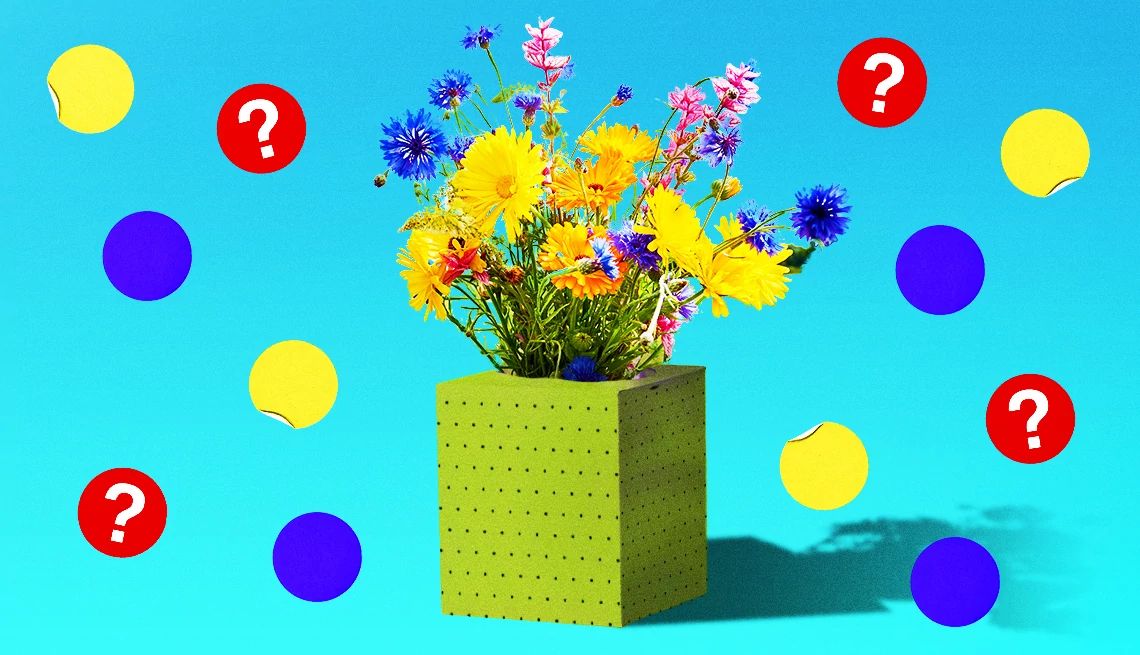
Our Allergies Quiz Is Nothing to Sneeze At
- Select a language for the TTS:
- UK English Female
- UK English Male
- US English Female
- US English Male
- Australian Female
- Australian Male
- Language selected: (auto detect) - EN
Play all audios:

AARP (Getty Images, 2) Facebook Twitter LinkedIn
This quiz was created with the assistance of generative AI. It was reviewed by editors before publication.
Spring is synonymous with beautiful flowers — and the arrival of allergy season. As pollen erupts from billions of blooming plants, millions of older Americans suffer from irritated eyes,
stuffy noses and scratchy throats. If you’re one of those folks, learn how to cope during these difficult months by reading our Smart Guide to Seasonal Allergies. After reading it, take
this quiz to test your knowledge of what you’ve learned.
Question 1 of 10What type of water should you use in a neti pot or sinus rinse kit for nasal irrigation?
Tap water Distilled, filtered or cooled-down boiled water Spring water Hot waterIt’s important to use distilled, filtered or cooled-down boiled water to prevent bacterial infections when performing nasal irrigation. Tap water can introduce harmful bacteria into your
nasal passages, leading to infection.
Question 2 of 10What are the worst times to plan outdoor activities if you want to avoid high pollen exposure?
Early morning and late afternoon Midday or after sunset Right after a rainstorm After 9p.m.
Pollen counts are generally highest in the early morning and late afternoon, so it’s best to schedule outdoor activities during times of the day when pollen levels are lower, such as in the
evening hours or before sunrise.
Question 3 of 10Why is using essential oils like peppermint and lavender during allergy season a bad idea?
They can irritate the nose, eyes and lungs, worsening allergy symptoms They make breathingharder by closing nasal passages They don’t treat the underlying allergy condition They don’t reduce the effect of airborne allergens
Essential oils can be soothing — but they can also irritate the nasal passages, eyes and lungs, making allergies worse. They can also cause skin reactions such as contact dermatitis.
Question 4 of 10
Why should you avoid using scented products like candles and air fresheners during allergy season?
They trap allergens in the air Many of them contain pollen as an ingredient, and theyalso release chemicals that can worsen allergies and irritation They don’t help reduce allergy symptoms They act as natural dehumidifiers
Many scented products, particularly air fresheners and candles, release chemicals and fragrances that can irritate the nasal passages, sinuses and skin, making allergy symptoms worse for
sensitive individuals. Additionally, many such items that list “fragrance” as an ingredient include pollen, the irritant so many of us are trying to avoid this time of year.
Question 5of 10
How can wearing glasses help with allergies during allergy season?
They act as a barrier to keep allergens from entering the eyes They help keep the nose clear of allergens They improveairflow, reducing irritation They reduce skin irritation from allergens
Glasses provide a physical barrier that helps prevent allergens from getting in the eyes, as well as irritation and inflammation.
Members only Unlock Access to AARP Members Edition
Join AARP to Continue Already a Member? Login
